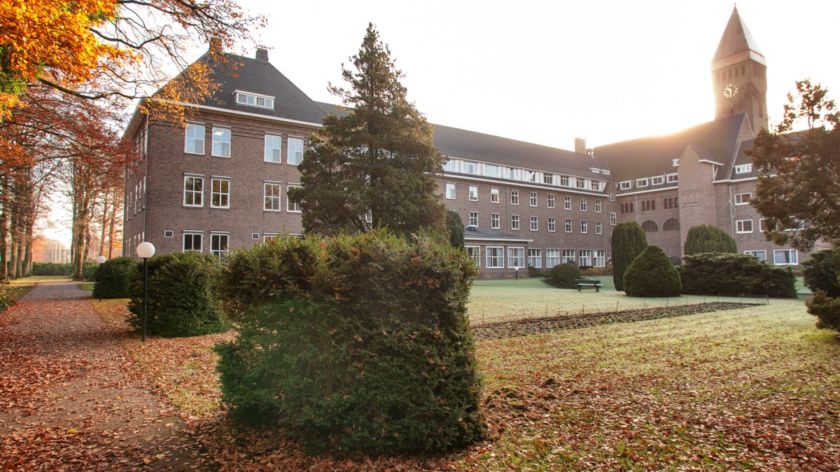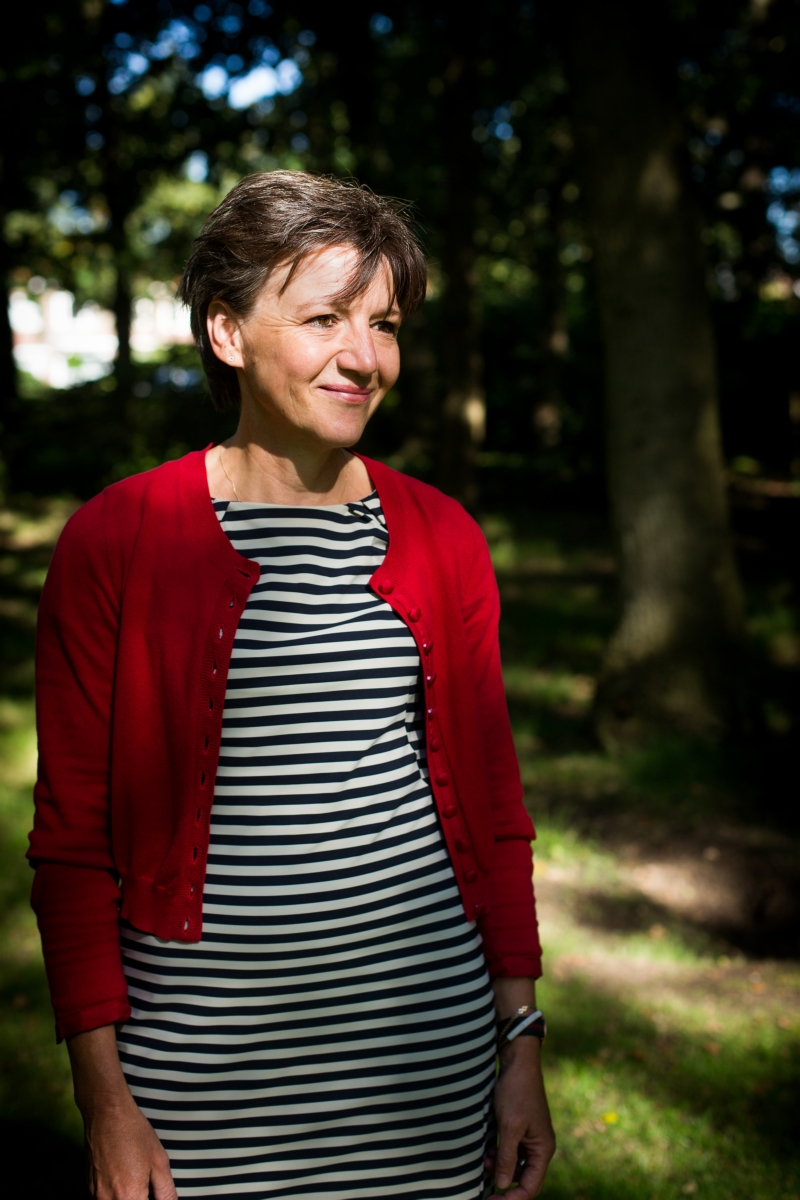No major Covid-19 impact on university finances as yet
-
 Foto: Dick van Aalst
Foto: Dick van Aalst
The University’s budget deficit as a result of the Covid crisis is smaller than feared. 'At present, money isn’t the problem. Where possible, we adapt,' says vice-chair Wilma de Koning. 'But the crisis mustn’t go on for years.'
The impact of the Covid crisis on Radboud University’s finances remains fairly limited at present, as evidenced by next year’s budget. The deficit for 2021 is estimated at 11.6 million euros, and at 8 million euros for 2022. ‘There’ll then be a further two years of smaller deficits, and a return to a positive balance in 2025,’ said finance director Peter Bosman in a Zoom interview in which vice-chair Wilma de Koning was also present.
The lion’s share of the deficit for 2021 is due to additional IT expenditure. That money will be spent on tighter IT security and on several larger automation projects, such as the rollout of Office 365. Only a third of the deficit, some 3.7 million euros, is the result of the Covid crisis. “That’s mainly the loss of Sports Centre memberships and university catering,” said Bosman. “The staff in both organisations are now being deployed in other roles.”
‘Covid delay’
All in all, the impact of the Covid crisis on the University’s finances is less than expected. Problems and delays with research lines were minor and the cost of contract extensions that aren’t otherwise covered have remained below 1 million euros in 2020. After experiencing a small initial delay, most research at the University was simply able to continue. ‘The biggest problems were in clinical studies involving human subjects in the medical faculty,’ said Bosman.
The money earmarked this year for extending the contracts of researchers who have suffered a ‘Covid-19 delay’, just over 1 million euros, has since largely been spent. ‘Next year we’ll continue with this arrangement to extend contracts and we’ll earmark the same amount,’ said De Koning.
From surpluses to deficits
In 2018, Radboud University had an equity of 306 million euros, most of which was in the form of buildings on campus. In 2018 and 2019, the University still had surpluses of some 21 million euros. A deficit of 6 million euros is expected in 2020, with deficits of 11.6 million and 8 million euros forecast for 2021 and 2022. These figures are no cause for alarm; given its current financial position, the University can cope with these deficits.
Despite the crisis, there were a couple financial windfalls. In June there were fears that new student numbers would stagnate as a result of the corona pandemic, but things turned out differently. ‘Some vacancies were filled much later and there were fewer travel expenses,’ said vice-chair Wilma de Koning. The upshot was that the deficit for 2020, originally budgeted at 8.3 million euros, is limited to 6 million euros.
Additional staff
The Board says it is doing everything it can to resolve the problems. Finance isn’t a problem, says Bosman. ‘Faculties are less worried about their budget and more concerned about whether they can implement solutions in time, such as hiring extra people to support hybrid teaching (a blend of face-to-face and online teaching, ed.) and research.’ These extra people are part of the 330 FTEs of additional staff that the university expects to hire in 2021. Bosman said that most of the money for this is covered by sector plans (additional investments in STEM education, ed.) and increased performance.
Peter Bosman doesn’t anticipate another major setback before the 2021 budget. ‘The main outlines are fixed in place. The government doesn’t have any cost-cutting plans, it’s clear that we’ll get the full tuition fees (students lobbied in vain for a coronavirus discount on tuition fees, ed.) and the majority of research projects have already been acquired. But what will happen in the years to come is currently uncertain.’
‘We think that the sports centre and catering will start up again in 2021’
For the time being, Radboud University has no intention of going cap in hand to The Hague along with other universities to ask for additional money for higher education. ‘We remain convinced that other sectors have been hit harder financially than we have,’ said De Koning. ‘We think that the sports centre and catering will start up again sometime in 2021. But if the Covid crisis continues for several more years, no university will be able to cope. It’s as simple as that.’
University arranges credit facility of 32 million euros
For the first time in its history, the University will shortly enter into a credit arrangement with the Ministry of Finance. This means that, if necessary, the University’s current account can be ‘in the red’ by up to 32 million euros from now on. The university uses these accounts – liquid funds – to pay salaries and other ‘day-to-day’ costs such as energy bills. Peter Bosman: ‘These are sizeable sums each month and you don’t want to suddenly find yourself unable to pay. You therefore need to have this lending option available for day-to-day operations. Also, the cost of borrowing isn’t too bad because of low interest rates.’
The fact that credit is needed doesn’t mean that the University’s finances are in a bad state. The financial position is fine, said Bosman. However, Radboud University has reduced its liquid assets in recent years, from about 125 million euros in 2015 to (at least) 20 million in 2023. This is because of growing criticism from politicians in recent years about the high reserves held by universities, said Executive Board vice-chair Wilma de Koning. ‘They think we should use our resources for teaching and research. High reserves are seen as an indication that we’re not doing enough.’ But that’s not correct, she said. ‘We need these reserves to invest in our campus.’ Radboud University has built up years of equity capital in order to pay for the cost of buildings on campus (such as maintenance, renovation and new construction), she explained. Since 1995, when the state transferred property to universities, this has been her responsibility. De Koning: ‘This reduced our liquidity. Investing in a modern, attractive campus benefits teaching and research.’




